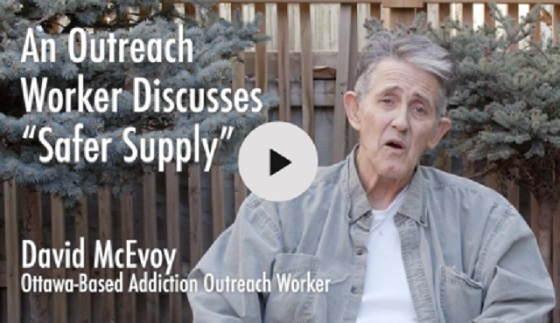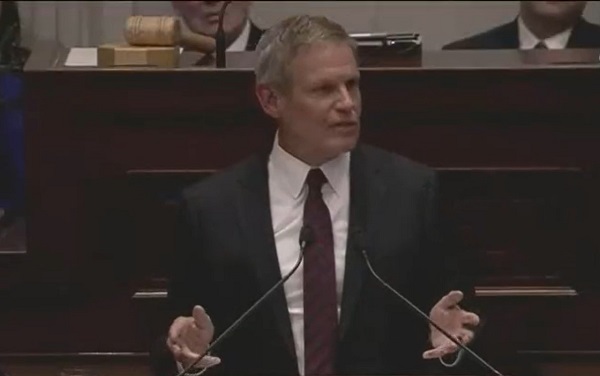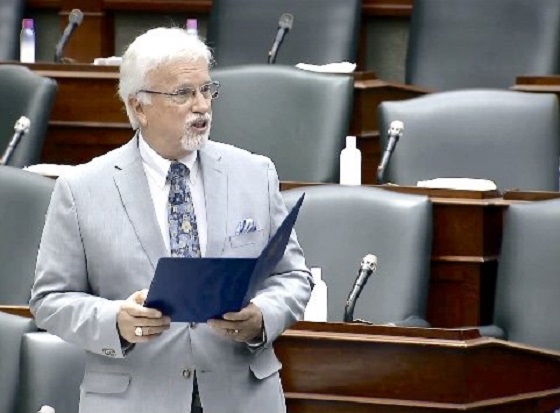Opinion
An important message from Cam Tait on the Alberta tires evacuations

Please read, friend: if you think there is any credence to organizing a project where Edmontonians could open up their homes for people being evacuated because of wildfires please give email me I am happy to spearhead it. Let’s help.
[email protected]
Addictions
Must Watch: Addiction worker estimates 90% of “safer supply” drugs resold on black market

“It’s just… it’s created more addicts,” says David McEvoy, an Ottawa-based outreach worker who specializes in overdose prevention.
|
|
“Safer supply” refers to the practice of prescribing free recreational drugs as an alternative to potentially-tainted street substances. While advocates claim that this practice saves lives, David McEvoy, an Ottawa-based addiction outreach worker, says that approximately 90% of clients are reselling their taxpayer-funded drugs on the street, leading to new addictions and relapses.
His testimony is consistent with the testimony of dozens of addiction experts, former drug users, and youth. You can read a summary of his interview in the National Post here.
Our content is always free – but if you want to help us commission more high-quality journalism, consider getting a voluntary paid subscription.
ESG
Tennessee Taking Lead In Protecting Civil Rights And Free Enterprise—And Stopping Political Debanking

Tennessee Gov. Bill Lee
From the Daily Caller News Foundation
By ERIC BLEDSOE
Last week, Tennessee Gov. Bill Lee (R.) signed into law a first-of-its-kind ban on politicized debanking. Sponsored by Rep. Jason Zachary (R.) and Senate Majority Leader Jack Johnson (R.), HB 2100 will prohibit the nation’s largest banks from discriminating against individuals, businesses, and non-profits for their political and religious views.
The new law is a landmark reform to stop large banks from imposing political litmus tests on Americans.
This legislation (HB 2100) is, of course, a reaction to the trend of the largest financial institutions creating partisan barriers to Americans’ access to financial services. Last year, Bank of America closed the deposit and credit card accounts of Memphis-based non-profit Indigenous Advance Ministries. The organization works with Ugandan widows and orphans to provide for their basic needs through Christian charity. Bank of America refused to give Indigenous Advance a reason why they closed the accounts—just that they no longer wanted to work with their “business type.”
Indigenous Advance’s experience is like what the National Committee for Religious Freedom (NCRF) faced when JPMorgan Chase closed their accounts. NCRF promotes religious liberty for Americans of all religious faiths. Chase said it would restore NCRF’s accounts if it disclosed a list of its donors, told the bank which political candidates it intended to support, and sent them the criteria NCRF uses to decide who they want to support politically. NCRF, out of respect for their donors’ right to privacy, declined.
John Eastman, past attorney for former President Donald Trump, was debanked twice at the end of last year by Bank of America and USAA. Again, the banks provided little to no explanation for the sudden closures. Eastman told the Daily Caller that the banks said it was their policy to not provide any further information. Banks stonewalling their customers on why they close their accounts is alarmingly becoming a pattern.
In December 2022, Wells Fargo abruptly closed the personal and business accounts of Brandon Wexler, a Florida-based gun dealer. The bank’s only explanation was a brief mention that it was due to their review of account risk. Wexler had a personal account with Wells Fargo for 25 years and a business account for 14 years. One instance of an account closing might not be worthy of attention, but more and more examples like these are becoming more common. And the only common thread, besides banks refusing to explain their actions, is that the targets of debanking hold political and religious views unpopular on Wall Street and Pennsylvania Avenue. This does not appear to be a policy at one bank, but an unspoken policy across the industry. Commenting on Wells Fargo’s action against him, Wexler said, “I’ve been with them for 25 years,” […] “I’m a professional fireman. I do everything the right way. It’s messed up.”
But large banks debanking individuals and non-profits is not the full extent of politically motivated financial service providers’ discrimination. In September, Tennessee Attorney General Jonathan Skrmetti sent a letter sent a letter to financial service providers who are signatories to the Net Zero Financial Service Providers Alliance (NZFSPA) warning them that their environmental, social, and governance (ESG) strategies may be in violation of antitrust and consumer protection laws. Both state and federal laws prohibit coordinated or collaborative efforts between corporations to restrict trade or commerce. All members of NZFSPA agree to “(a)lign all relevant services and products to achieve net zero greenhouse gas emissions by 2050 or sooner, scaling and mainstreaming Paris Agreement-alignment into the core of our business.” Though the 27 members of NZFSPA are supposed competitors in the financial services market, their joint commitment to restrict sectors of the economy like fossil fuel is clearly a coordinated effort.
Large financial institutions’ boycott of fossil fuel and discriminatory actions against individuals and non-profits for their religious or political views may seem disconnected at first. But those following the ESG movement won’t be surprised to see these politically motivated efforts across multiple sectors. Last month, Montana Attorney General Austin Knudsen sounded the alarm over these radical policies to Wells Fargo CEO Charles Scharf with the support of 15 other state attorneys general. A member of the Net Zero Banking Alliance (NZBA), Wells Fargo has committed, alongside 143 other banks, to implement ESG policies. In the letter, the attorneys general noted that Wells Fargo has a record of debanking Republican candidates and the firearms industry, imposing race- and gender-based quotas on credit customers, and publicly committing to implement radical climate standards on the energy industry.
Leftist activists realize they cannot accomplish such a radical agenda of eroding individual rights and a free economy through the ballot box. ESG is a political tool that enables the far left to bypass the democratic process to will their worldview onto Americans’ lives. In response, policymakers and other stakeholders must strengthen and enforce civil liberties protections, consumer rights, and antitrust laws, so that political activists cease willing their agenda on citizens.
Fortunately, states like Tennessee are taking the lead in protecting civil rights and free enterprise.
Eric Bledsoe is a Senior Policy Fellow at the Foundation for Government Accountability.
The views and opinions expressed in this commentary are those of the author and do not reflect the official position of the Daily Caller News Foundation.
-

 Business17 hours ago
Business17 hours agoUN plastics plans are unscientific and unrealistic
-

 Brownstone Institute20 hours ago
Brownstone Institute20 hours agoThe Teams Are Set for World War III
-

 Education14 hours ago
Education14 hours agoSupport a young reader through the Tim Hortons Smile Cookie campaign
-

 Alberta6 hours ago
Alberta6 hours agoAlberta threatens to fight Trudeau government restrictions on Canada’s plastics industry
-

 Opinion18 hours ago
Opinion18 hours agoThe Climate-Alarmist Movement Has A Big PR Problem On Its Hands
-

 Automotive5 hours ago
Automotive5 hours agoCanadian interest in electric vehicles falls for second year in a row: survey
-

 Addictions19 hours ago
Addictions19 hours agoWhy can’t we just say no?
-

 COVID-193 hours ago
COVID-193 hours agoFormer Canadian lawmaker has no regrets about refusing COVID shot despite losing his job





